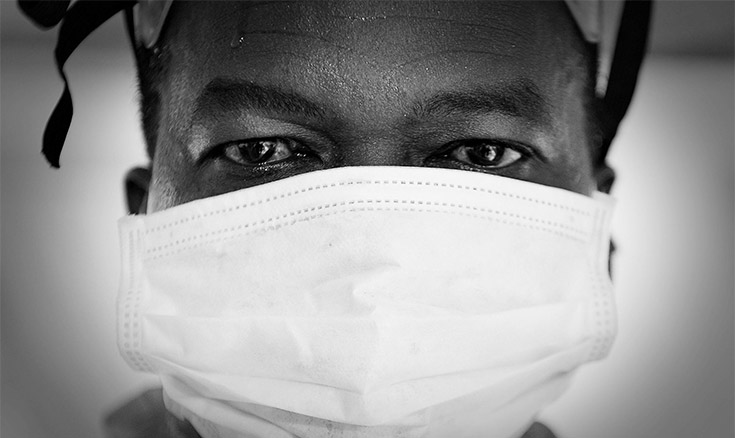Saving Lives: The Civil-Military Response to the 2014 Ebola Outbreak in West Africa
The Marie Bashir Institute and Centre for International Security Studies in Australia have released the interim report of Saving Lives: The Civil-Military Response to the 2014 Ebola Outbreak in West Africa.
The report analyses the role that various humanitarian agencies, the United Nations, and foreign and domestic military forces performed throughout the 2014 outbreak in Liberia and Sierra Leone.
This study was a joint initiative involving researchers from the University of Sydney, Queen Mary University of London, and the London School of Hygiene & Tropical Medicine, and funded by the University of Sydney. The final report is due to be released in September 2015.

A Sierra Leonean doctor during training by British troops on Operation Gritrock, the UK's response to combat and defeat Ebola in the region (Carl Osmond / Crown Copyright 2014)
Drawing on over 60 interviews with key stakeholders, including government officials, health professionals, diplomats, military officers, and representatives from non-government organisations and United Nations agencies, the report examines how the affected governments and the international community responded to the crisis in the initial stages of the outbreak.
It also explores some of the challenges that arose in relation to coordination, including the creation of the UN’s first ever public health mission – the United Nations Mission for Ebola Emergency Response (UNMEER).
The report concludes by outlining a series of key recommendations for consideration by governments, humanitarian organisations, and UN agencies on how to improve future civil-military co-operation in health-related humanitarian crises.
This study was a joint initiative involving researchers from the University of Sydney, Queen Mary University of London, and the London School of Hygiene & Tropical Medicine, and funded by the University of Sydney. The final report is due to be released in September 2015.